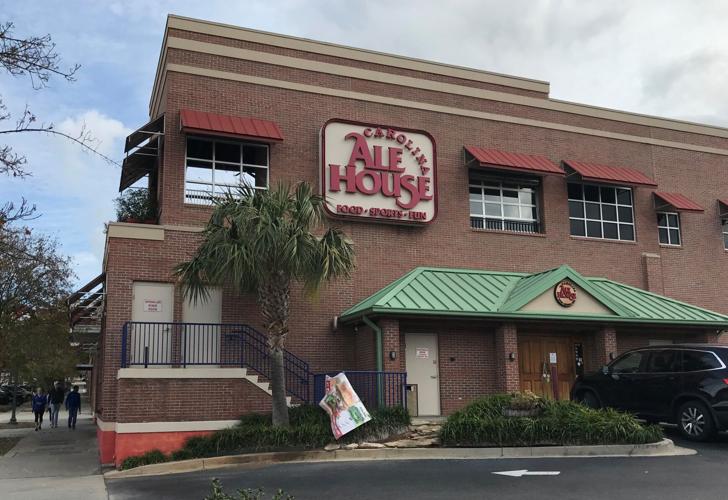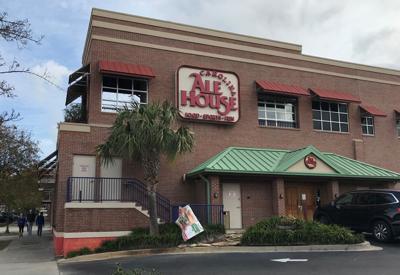Shortly after the outbreak of COVID-19, South Carolina restaurant chain operator Sullivan Management sought reimbursement from its property insurers for losses it suffered from government-mandated closings and other disruptions to its core sit-down dining business.
The carriers rejected the claim.
Enter the S.C. Supreme Court, which was asked to review and decide an important, if clumsily worded, question that got to the crux of the dispute: "Does the presence of COVID-19 in or near Sullivan's properties, and/or related governmental orders, which allegedly hinder or destroy the fitness, habitability or functionality of property, constitute 'direct physical loss or damage' or does "direct physical loss or damage' require some permanent dispossession of the property or physical alteration to the property?"
The high court came back with its unified answer to that mouthful last week.
It didn't help Sullivan Management's cause.
The Columbia-based company was running eight Carolina Ale House restaurants and sports bars in South Carolina and another across the state line in Augusta under a deal with the chain's Raleigh-based owner when the pandemic hit the U.S. in early 2020, locking down large swaths of the nation's brick-and-mortar service economy.
On or around March 10 that year, Sullivan Management said it contacted its insurance agent "about the government-ordered closure of dining rooms to patrons" and asked whether any part of its policy covered pandemic-related "business interruption losses."
The company was told that the "only potential coverage" came under a section carved out for communicable diseases and would be limited to $250,000. It said it promptly filed a claim with Allianz Global Risks US Insurance Co. and its affiliated Fireman's Fund Insurance Co.
They returned a denial letter about a month later, saying "that there was no coverage for one penny of the losses under the policy," according to a court filing.

Carolina Ale House closed two South Carolina restaurants in Charleston and Columbia during the pandemic. File
The Carolina Ale House operator responded by suing the carriers in Richland County in May 2020, alleging breach of contract and seeking either financial damages or a ruling declaring its claims were covered. The case was quickly moved from state court to federal court in Columbia, namely named because the insurance companies are headquartered outside of South Carolina.
Among other arguments, Sullivan Management said the likely "continuous presence" of the virus in and around its restaurants "has rendered the premises unsafe and unfit for their intended use and therefore caused physical property damage or loss under the policy."
Allianz and Fireman's Fund disagreed with that interpretation. They asked that the complaint be dismissed.
The back-and-forth hit an impasse in mid-2021, as lawyers on both sides were debating and questioning "the proper legal definition of certain terms" in the policy, according to U.S. District Court Judge Mary Geiger Lewis. The problem was that they weren't able to point to any prior South Carolina precedent to support their arguments. Lewis decided "it would be proper" to let the state Supreme Court make the call.
The justices in Columbia ended up focusing on just one of the five questions that they agreed to review.
In setting the stage for their Aug. 10 decision, they noted that "many courts across the country have been asked ... whether losses due to the presence of the coronavirus and/or resulting government closure orders are covered under commercial property insurance policies. While it is helpful for the court to be aware of the tidal wave of litigation, we rely on South Carolina law to answer this question."
The insurance carriers, in this instance, prevailed.
The high court agreed with their assertion that "neither the presence of the coronavirus nor the government shut-down orders constitute 'direct physical loss or damage' because that phrase requires 'actual' or "discernable' physical damage.' In other words, in order to trigger coverage, the loss or damage must be more than mere loss of use or economic loss; instead there must be a 'physical alteration, destruction, or permanent dispossession of property.'"
Sullivan Management is back in business for the most part, helped with $312,000 it received in 2020 and 2021 from an emergency forgivable federal loan program for businesses that were hurt by the pandemic.
One COVID casualty was the company's Lady Street restaurant in downtown Columbia's Vista area. It was closed in late 2020. Previously, the downtown Charleston location on King Street also shut its doors.
Mount Pleasant attorney Justin O'Toole Lucey, who represents Sullivan Management, said he was disappointed with the Supreme Court's reading of the policy while also crediting his "opposing counsel on the good work they did in this matter."
The dispute isn't over. Sullivan Management plans to ask for a reconsideration of last week's decision. And it will keep pursuing its federal lawsuit in front of Lewis and address "several of the most hotly litigated policy terms" that the Supreme Court declined to review, according to Lucey.
"These issues were remanded to the District Court to decide," he said.













